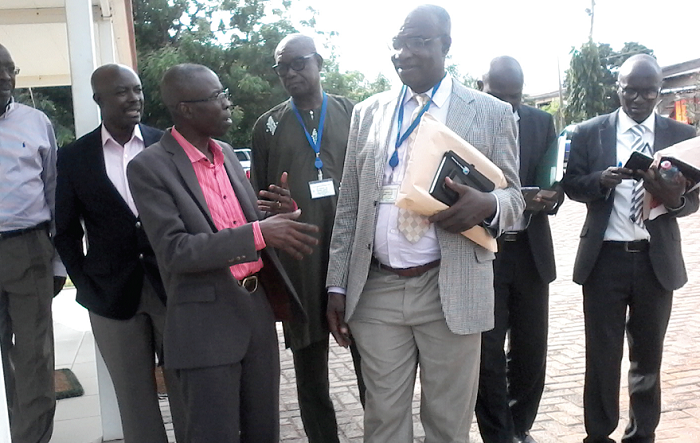
Focus more attention on rural poor - MPs tell SIF
The Parliamentary Select Committee on Poverty Reduction Strategy has appealed to the management of the Social Investment Fund (SIF) to focus its attention more on the rural poor as its core mandate demands.
Advertisement
It said even though it was not against the fund channelling its resources into other areas, “We think it is important that you do not lose focus,” the Chairman of the committee, Dr Kojo Appiah-Kubi, said.
Dr Appiah-Kubi, who was contributing to a discussion on a five-year strategic plan of the SIF during a working visit of the committee to the headquarters of the fund in Accra, explained that the fund was not operating in all the districts because of inadequate funding.
“The reason we are talking about poor areas is the fact that they say they do not have enough funding, so if you do not have enough funding and you are spreading out, it means your resources will be thinly spread,” he explained.
Mandate of SIF
The committee members were taken through the establishment, activities and future plans of the fund, as well as the challenges confronting it.
The SIF was set up in 1998 under the Companies Code 1963 (Act 179) by the Government of the Republic of Ghana, African Development Bank (AfDB) and the United Nations Development Programme (UNDP) as a rapid, reliable and flexible mechanism for channelling resources into delivering targeted assistance to both Ghana’s urban and rural impoverished communities.
As a pro-poor institution, the goal of the SIF is to contribute effectively to reducing rural and urban poverty in Ghana.
Advice
Members of the committee advised the management of the fund to involve them in the planning and implementation of projects by the fund, especially in their respective constituencies.
They also suggested that the fund could tap their expertise when the need arose, citing, for instance, that during negotiations and sourcing for fund, some members of the committee could always be included to give more weight to its negotiation power.
The members, therefore, urged the management of the fund to work closely with the committee to ensure the smooth implementation of such projects geared towards alleviating poverty in the poor communities.
They further advised the management of the fund to realign their interventions with the various poor areas government had outlined.
Prudent management
Dr Appiah-Kubi commended the SIF for prudently managing and judiciously disbursing the resources channelled into it towards reducing poverty, especially in the rural areas.
“SIF has been around for some time and has been one of the few agencies that has not so far got itself into trouble,” he said, expressing his admiration for the fund for executing its projects at a relatively very low cost.
He, therefore, urged the management of the fund to continue to maintain the level of discipline and professionalism so far exhibited.
Operations of SIF
Earlier in a presentation on the activities of the fund, the Executive Director of the SIF, Mr Joseph Acheampong, walked the committee members through the inception of the fund, its sources of funding, challenges and its current project.
He said the vision of SIF was to be the leading organisation in the country and the sub-region for resource mobilisation and transfer to empower communities for sustainable development.
Mr Acheampong explained that the overall strategic goal of SIF was to contribute significantly to government’s efforts to achieve the United Nations’ Sustainable Development Goals (SDGs) by 2030.
He said the SIF was not operating in a vacuum, but was working closely with the district assemblies for effective implementation and sustainability of such projects.
Funding of projects
Mr Acheampong told the committee members that since the inception of the SIF in 1998 till 2016, the fund had received a total of $85.98 million for implementation of poverty-related projects.
He mentioned the sources of funding to include the AfDB, UNDP, the OPEC Fund for International Development (OFID), the Arab Bank for Economic Dev. in Africa (BADEA), the Government of Ghana and some private entities.
The SIF now seeks public-private partnership (PPP) arrangements in investment and financing.



